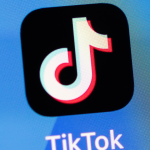Social media is more than just selfies and memes—it’s a powerful force shaping how we shop. You might think you’re just browsing, but platforms like Instagram, TikTok, and Facebook are constantly nudging you toward your next purchase. If you’ve ever added something to your cart after watching a 10-second video, you’re not alone. Here are nine surprising ways social media is shaping your spending habits—without you even realizing it.
1. Influencer Recommendations Feel Personal
When influencers talk about products, it feels more like advice from a friend than a sales pitch. Their curated lifestyles and “honest” reviews build trust that traditional ads can’t replicate. Many people follow influencers who reflect their values, fashion taste, or daily routines, making suggestions feel tailored. Even when it’s a sponsored post, the casual tone makes it easier to accept. This emotional connection leads to impulse buying more often than you’d expect. You’re not just buying a product—you’re buying into their lifestyle.
2. Targeted Ads Know Your Weak Spots
Social media platforms track your searches, likes, and interactions to deliver hyper-targeted ads. That pair of shoes you looked at once? It shows up in your feed five more times. These algorithms are designed to catch you when your defenses are low—late at night, when you’re bored, or after a bad day. The convenience of one-click shopping makes it even easier to give in. Before you know it, you’re spending money on things you barely remember wanting. It’s not a coincidence—it’s strategy.
3. Flash Sales and Limited Drops Create Urgency
Platforms like Instagram and TikTok often showcase time-sensitive deals, countdowns, or “only 2 left” notifications. These tactics create a fear of missing out (FOMO), pushing you to buy now rather than think it through. Influencers and brands frequently hype up product launches to feel like exclusive events. This urgency bypasses logical decision-making and taps directly into emotional triggers. You may spend more just to avoid regret. In reality, most of these items aren’t going anywhere—and neither should your savings.
4. Comparison Culture Boosts Lifestyle Spending
Scrolling through posts of people on luxury vacations or in trendy outfits can quietly pressure you to spend more. The desire to keep up with appearances or feel “on trend” is a powerful motivator. Social media normalizes high-cost lifestyles that aren’t realistic for everyone. It can make everyday purchases feel inadequate, leading to splurging on upgrades. The more you compare, the more tempted you are to match their spending. That pressure can easily lead to financial strain if left unchecked.
5. Sponsored Giveaways Make You Browse Longer
Brands often partner with influencers for giveaways that require tagging friends, visiting websites, or following accounts. While the giveaways seem like fun, they often serve as marketing tools to extend your exposure to new products. Even if you don’t win, you may end up shopping through the featured items. These giveaways increase brand visibility while gently pushing you toward a purchase. The longer you stay engaged, the more likely you are to buy. It’s a clever form of advertising wrapped in excitement.
6. DIY and Haul Videos Trigger Impulse Buys
TikTok “haul” videos and DIY tutorials often showcase products in action, making them more desirable. Seeing someone transform their room or wardrobe creates the illusion that you can, too, with just a few clicks. These videos make shopping look easy, fun, and necessary for self-improvement. They blur the line between need and want. You end up buying things to recreate the vibe, not because you actually need them. These mini-makeovers often come with a major price tag.
7. Shopping Features Encourage On-the-Spot Purchases
Instagram Shops, TikTok Shop, and Facebook Marketplace all integrate directly with your feed. You no longer need to leave the app to make a purchase. The fewer steps between seeing and buying, the more likely you are to spend impulsively. This design encourages instant gratification over thoughtful spending. Add to that free shipping or discount codes, and resisting becomes even harder. Convenience may be king, but it often reigns over your budget.
8. Viral Trends Make You Think You Need It
A viral product often creates a bandwagon effect—if everyone has it, you feel like you should too. These trends spread fast and make products seem essential, even if they’re just the flavor of the month. Social proof plays a big role in convincing people to buy. If thousands of others are using it, the product must be worth it, right? Unfortunately, many of these items lose relevance quickly. Chasing trends can drain your wallet and leave you with things you never actually needed.
9. Positive Vibes Equal Spending Triggers
Scrolling through upbeat, aesthetic content puts you in a good mood—and that’s when you’re most likely to shop. Studies show people are more prone to spending when they’re feeling happy or excited. Social media is a constant stream of mood boosters: pretty visuals, inspiring stories, and catchy music. Brands use this to their advantage by placing products in the middle of all that feel-good content. Shopping becomes part of the experience rather than a conscious decision. And when you’re in a good mood, you’re more likely to hit “Add to Cart.”
Awareness Is Your Best Defense
Social media isn’t just influencing your style or hobbies—it’s shaping your spending, often without you realizing it. The blend of entertainment, lifestyle envy, and targeted marketing is a recipe for overspending. But being aware of these tactics can help you pause before pulling out your wallet. Before you buy, ask: Do I really need this, or did a video make me think I do? Financial mindfulness starts with noticing the little nudges. Because when it comes to your money, you should be the one calling the shots—not the algorithm.
Read More
6 Eye-Opening Social Media Addiction Stats You Can’t Ignore
TikTok Saved Me Money: 10 Ways to Leverage Social Media for Unbelievable Savings
Read the full article here
















